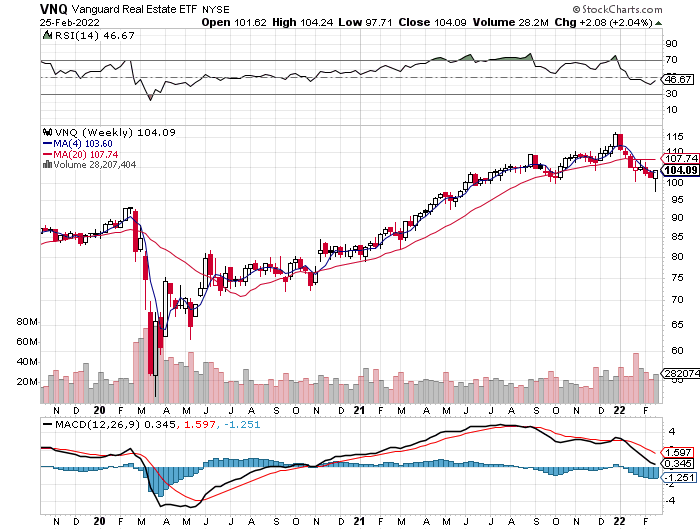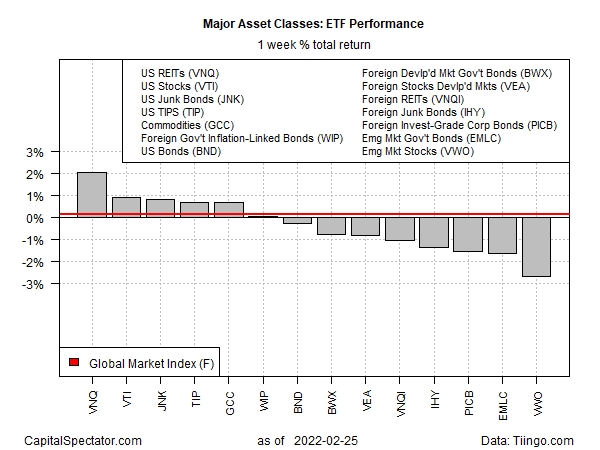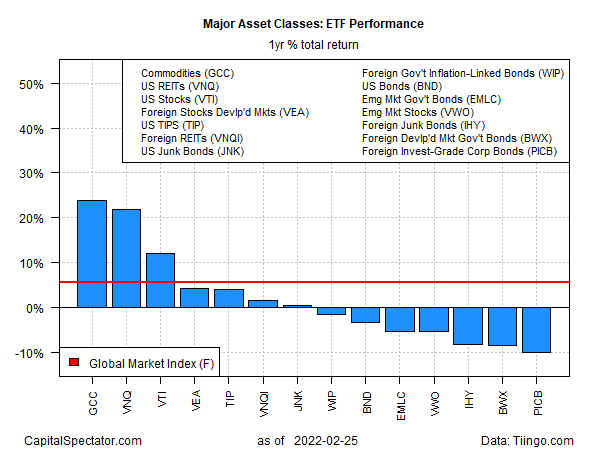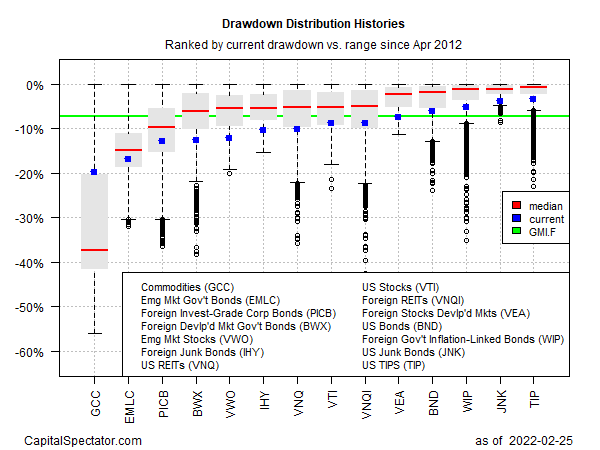Markets tried to look through Russia’s invasion of Ukraine last week. But as the brutal reality of war becomes clearer and economic blowback spreads across the global economy, sentiment will come under increased pressure in the days ahead.
US trading begins today following mixed results for the major asset classes in last week’s session, based on a set of ETFs. US real estate investment trusts (REIT) were the top performer, book-ended at the opposite extreme with emerging markets stocks, which fell sharply last week.
Vanguard Real Estate (NYSE:VNQ) rose for the first time in three weeks, rallying 2.0%. But the bounce doesn’t look convincing. VNQ has been trending lower for much of the year to date, and the arrival of war on Europe’s eastern border isn’t likely to provide conditions to keep the upside momentum going in the immediate future.

US stocks (VTI) managed to post a 0.9% gain last week, which also marks the first increase in the past three. But risk-off sentiment appears poised to return in no uncertain terms today, based on futures trading for American shares ahead of the market’s New York opening. Homin Lee, Asia macro strategist as Lombard Odier, says:
“We’re just a few days into a kind of once-in-a-lifetime reorientation in the global order. This transition is not going to be a smooth one as uncertainty remains high in the weeks ahead.”
Shares in emerging markets posted the biggest loss for the major asset classes last week: Vanguard FTSE Emerging Markets (NYSE:VWO) fell 2.7%, reversing much of the rally over in February.
The overall trend was modestly positive as the Global Market Index (GMI.F) edged higher last week, rising 0.2%. This unmanaged benchmark, maintained by CapitalSpectator.com, holds all the major asset classes (except cash) in market-value weights via ETF proxies.

Reviewing the major asset classes on a trailing one-year basis now shows a broad set of commodities in first place. WisdomTree Enhanced Commodity Strategy Fund (GCC) is up 23.9% over the past 12 months through Friday’s close, edging out the second-place performer: Vanguard US Real Estate (VNQ), which is ahead by 21.9% for the trailing one-year period (252 trading days).
Foreign corporate bonds are currently the biggest one-year loser. Invesco International Corporate Bond ETF (PICB) is down 10.2%.
GMI.F’s one-year change is a 5.5% total return.

Profiling markets based on current drawdown shows that the majority are posting deeper peak-to-trough losses relative to GMI.F. The drawdowns range from a mild 3.4% decline for inflation-indexed Treasuries (NYSE:TIP) to a relatively steep 19.9% drawdown for Continuous Commodity Index Fund (NYSE:GCC).
GMI.F is currently 7.2% below its previous peak.

